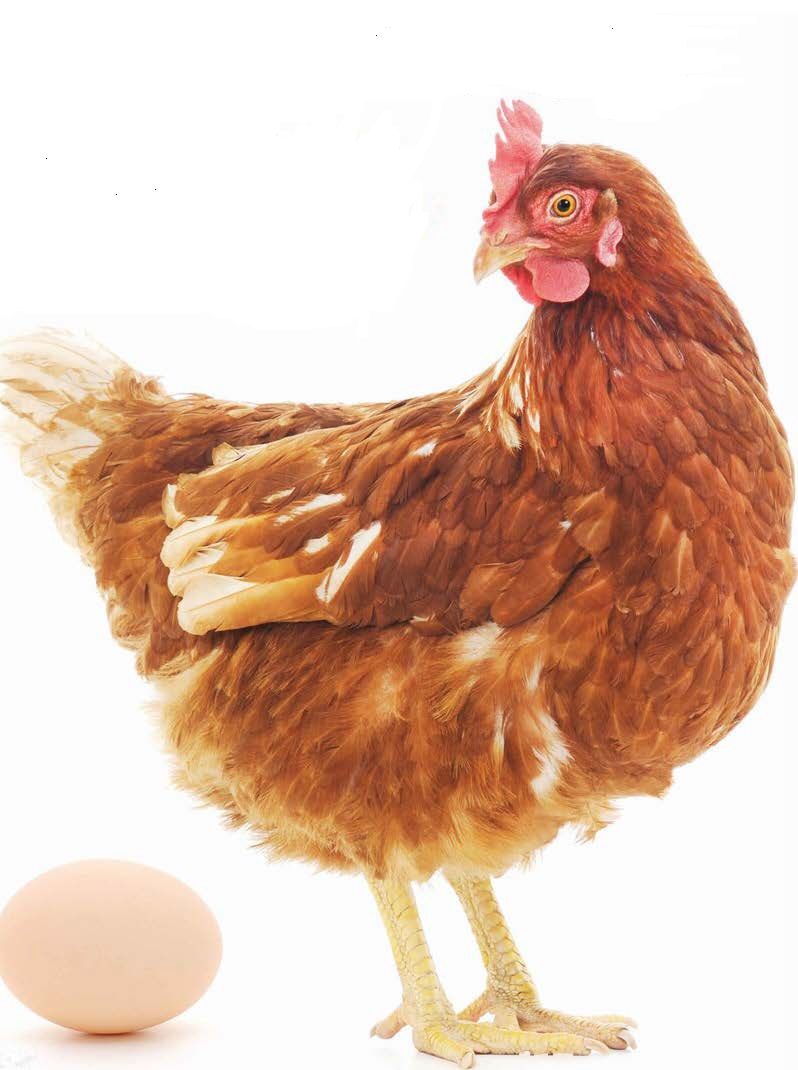Successful Tips for Starting Chicks
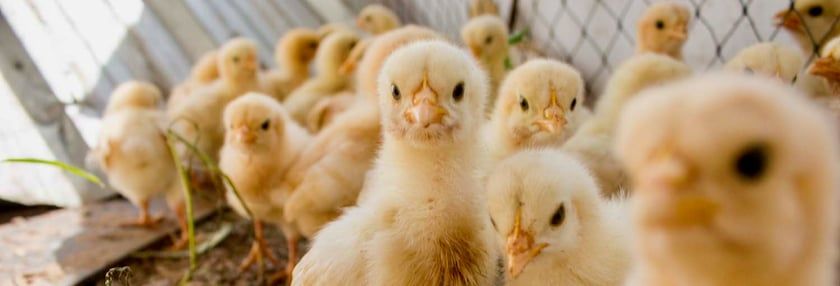

Building a solid foundation for a healthy flock
Bringing home or hatching new chicks is an exciting time for new and seasoned small flock poultry owners. Chicks are especially vulnerable during their first few weeks of life. Starting them off right, with extra care during this time is essential for survival as well as proper growth, health, and egg production later in life.
Provide quality housing
There are many considerations to take into account when designing the right brooder for your chicks. There are key elements essential to protect chicks from threats, including weather and temperature changes, predators, and disease.
Plus, remember that brooder housing is temporary. As soon as your birds are fully feathered, around 4 to 6 weeks of age, they can be move into the main coop.
Key elements
- Protect against weather changes and drafts
- Proper ventilation—ensure adequate air flow without chilling the chicks
- Adequate space for growth—2 square feet of floor space per chick
- Deep enough to prevent escape, or covered with netting or wire
- Keep dry—dampness can encourage bacterial growth and cause chicks to get chilled
- Appropriate bedding. Avoid cedar wood shavings, as the oils can damage the chick’s lungs and cause respiratory issues
Natural litter treatments designed for poultry can safely reduce odor, moisture, and bacteria to improve chicks living conditions. Certain products can also extend litter life and improve the quality of compost. Coop Recuperate is designed specifically for poultry and contains organic eucalyptus and lemongrass essential oils and diatomaceous earth, a natural fly repellent.

Keep chicks warm
For the first few weeks of life, chicks are unable to regulate their own body temperature. Keeping the appropriate temperature for each week of the chick’s life will support them through this sensitive stage.
Keep a thermometer in the brooder to keep the temperature where you expect it.
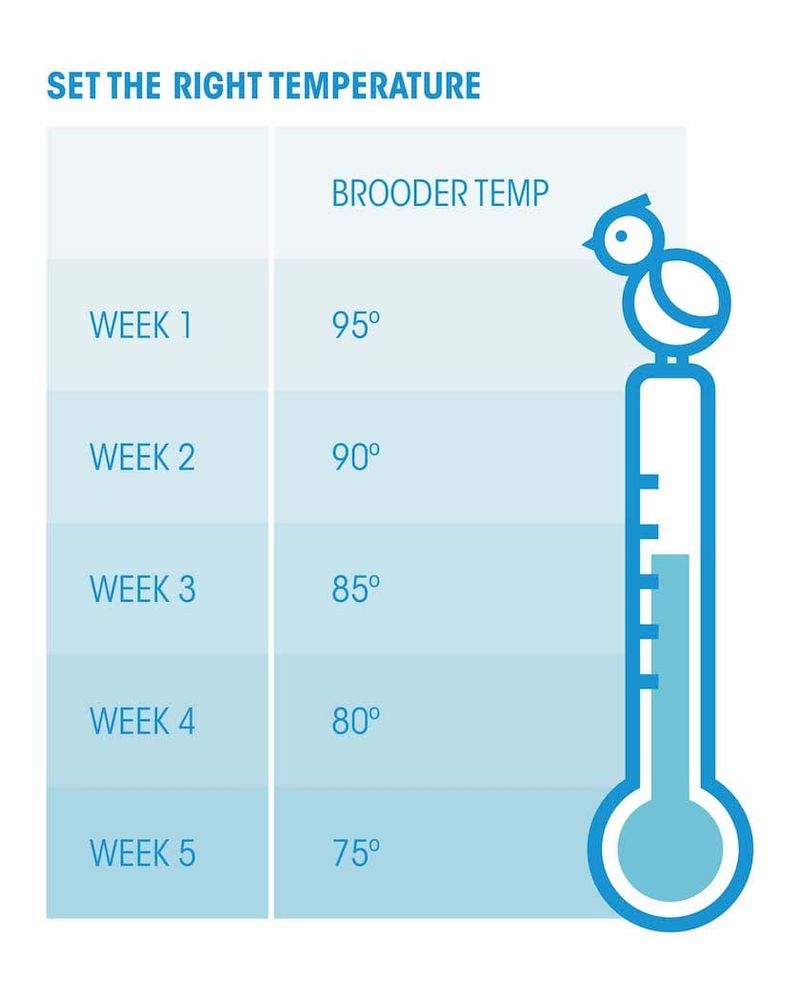
Select an appropriate heat source to ensure safety and prevent fires. Do your homework and find the heat source most appropriate for your brooder and follow instructions.
Your birds need to have room to move to cooler spaces if they get too warm, but that all birds can comfortably sit under the heat source. If using a heat lamp, consider a red bulb that will provide enough light for the young chicks to see their food and water but is not so bright to keep them awake.
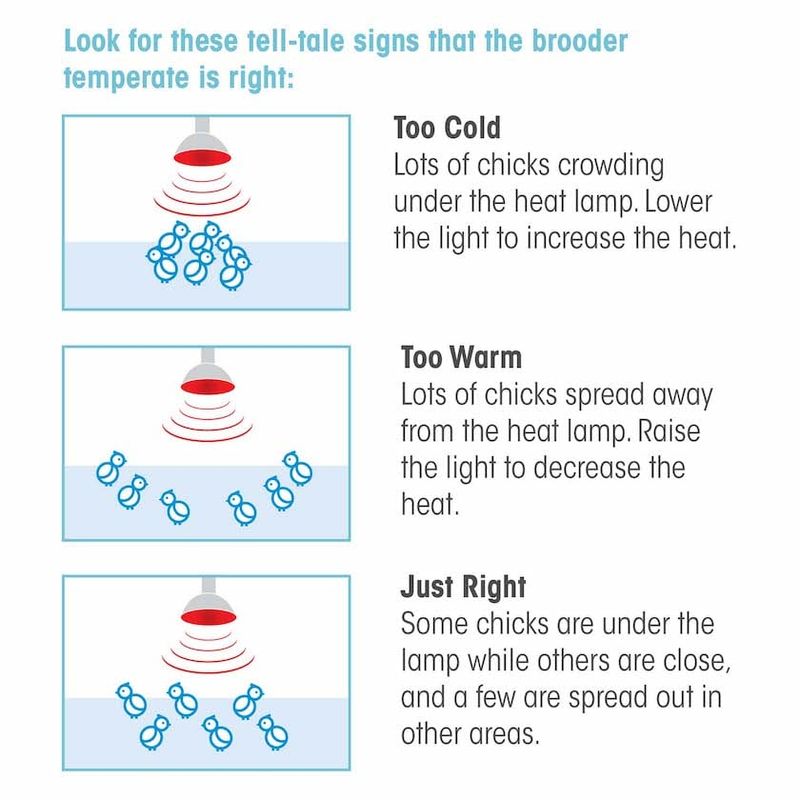
Provide appropriate feed and water
It is extremely important to get new chicks eating as soon as possible. Chicks do not have much energy reserves stored in their little bodies, so they need to eat continuously to stay healthy.
Birds need a complete balanced diet, specially formulated for the type of bird being fed and stage of life. For example, the particle size and composition of layer diets are not appropriate for young, growing chicks.
Choose a reliable source that contains the appropriate nutrients, and remember to read the label as different feeds are used for different types of chickens at different stages of life. Store the feed in a cool dry place to prevent mold and bacterial growth and preserve the feed’s nutrient value. Check and adhere to expiration dates, as important vitamins naturally break down over time.
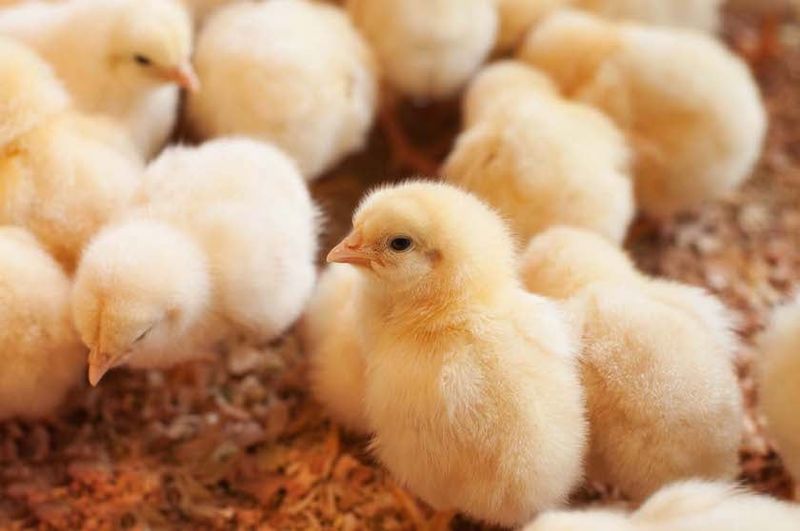
Keeping your chicks hydrated is essential for appropriate growth, development, and digestion. They must always have adequate access to clean water to encourage drinking.
Chicks experience stress when being transferred to their brooder and quickly get dehydrated and exhausted during transportation. As they are placed in their brooder, direct them to the water source. If they may have been chilled, ensure this first access to water is warm but after a couple of days they can have clean cool water.
Natural feed additives designed specifically for chicks are safe ways to encourage baby chicks to get eating and provide a boost to early digestive health. First Peep is a natural, non-medicated feed supplement option containing sea kelp, essential oils, and prebiotics that encourages chicks to eat and supports early digestive health.

Ensure feed and water availability
Purchase feeders and waterers designed especially for chicks. This will help prevent birds from jumping in the feed and making a mess and contaminating the feed by defecating in it. This also means the feeders are at the appropriate height.
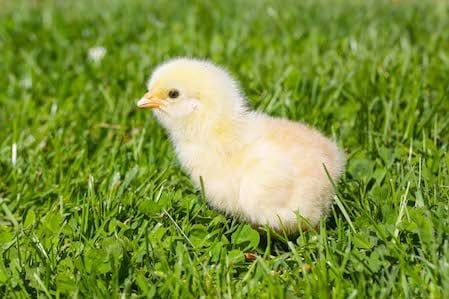
Keep the feeders and waterers clean and remove any bedding or feces. Depending on the number of chicks and brooder size, you may need multiple sources of both feed and water two more aggressive chicks don’t outcompete the others.
Do not let feed or water run out, as this is extremely stressful to birds.
Natural water additives designed specifically for chicks are safe ways to encourage baby chicks drinking. Chick E-Lixir is a natural, non-medicated water supplement option, containing organic essential oils, prebiotics, electrolytes and essential vitamins and minerals (including calcium) that encourages chicks to drink, supports immunity, promotes digestive health and supports bone development.

Establish digestive health
When chicks hatch, their guts are basically sterile and need to be populated with a good mix of healthy bacteria and other small microbes including viruses, fungi, and protozoans—this population is known as the microbiome.
A healthy microbiome is essential for proper maturation of a baby chicks’ intestinal tract as well as appropriate establishment and maturation of the bird’s immune system. The chick’s microbiome is closely interconnected with the chicks developing immune system and developing intestinal wall.
Unlike mammals that nurse and receive colostrum, freshly hatched chicks unfortunately do not receive this protection. (They do acquire some maternal protection through the yolk, but these quickly disappear after hatching.) Young chicks do not begin to develop their own disease defense mechanisms until a few days post-hatch, making them quite vulnerable in their first few days.
The majority (over 70%) of the bird’s immune system is located in the intestinal tract, this is why getting a bird’s digestive tract and microbiome healthy from the start leads to healthier immune system development. This is also why maintaining a healthy intestinal tract throughout the bird’s life leads to healthier birds that are more resilient to disease and other stressful challenges.
Develop a disease prevention plan
Starting chicks off right means implementing a good health program focused on disease prevention. Diseases can be prevented with an appropriate vaccination, health, and biosecurity program that you design with your veterinarian. These programs will prevent and support them through disease challenges that your birds are at risk for.
This program may also include a vaccination plan, medications, natural supplements, and protocols to protect your flock.
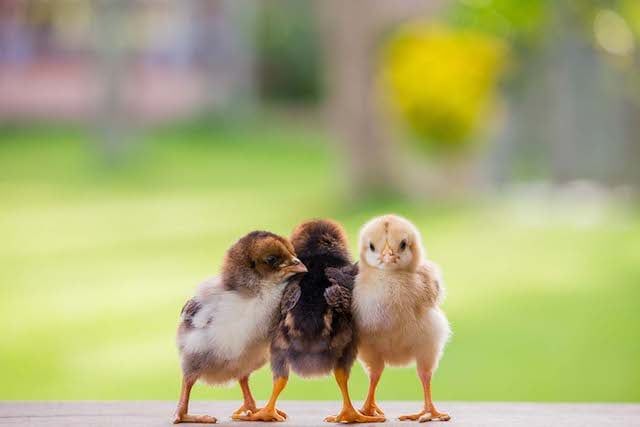
With a proper environment, appropriate feed, water, supplements, and disease prevention plan that includes a focus on maintaining digestive health, your chicks will thrive and develop into a happy healthy flock.
Tags:Poultry Advancements

Chicken Whisperer is part of the Catalyst Communications Network publication family.








